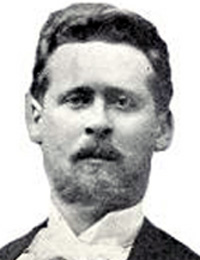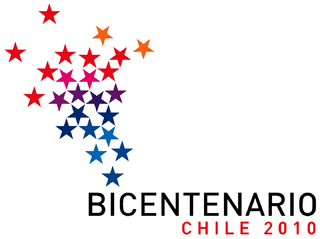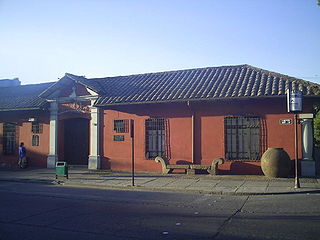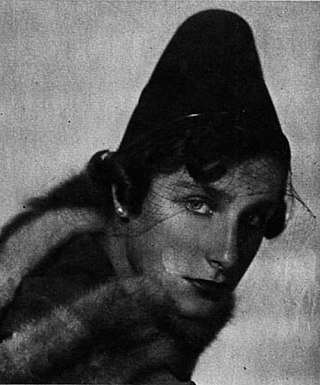This article needs additional citations for verification .(March 2019) |
| |||||
| Decades: | |||||
|---|---|---|---|---|---|
| See also: | |||||
The following lists events that happened during 1910 in Chile.
This article needs additional citations for verification .(March 2019) |
| |||||
| Decades: | |||||
|---|---|---|---|---|---|
| See also: | |||||
The following lists events that happened during 1910 in Chile.

Pedro Elías Pablo Montt Montt was a Chilean political figure. He served as the president of Chile from 1906 to his death from a probable stroke in 1910. His government furthered railroad and manufacturing activities but ignored pressing social and labour problems.

Manuel Francisco Antonio Julián Montt Torres was a Chilean statesman and scholar. He was twice elected President of Chile between 1851 and 1861.

Ramón Barros Luco was President of Chile between 1910 and 1915.

Emiliano Figueroa Larraín was President of Chile from December 23, 1925, until his resignation on May 10, 1927. He also served as acting president for a few months in 1910.

Instituto Nacional General José Miguel Carrera, often shortened to Instituto Nacional, is a public middle and high school in downtown Santiago, Chile which teaches 4.400 students between 7th and 12th grade. 170 teachers are employed.

Elías Fernández Albano was a Chilean politician, who was acting president of Chile from August 16, 1910 until his death.

The Parliamentary Era in Chile began in 1891, at the end of the Civil War, and spanned until 1925 and the establishment of the 1925 Constitution. Also called "pseudo-parliamentary" period or "Parliamentary Republic", this period was thus named because it established a quasi-parliamentary system based on the interpretation of the 1833 Constitution following the defeat of President José Manuel Balmaceda during the Civil War. As opposed to a "true parliamentary" system, the executive was not subject to the legislative power but checks and balances of executive over the legislature were weakened. The President remained the head of state but its powers and control of the government were reduced. The Parliamentary Republic lasted until the 1925 Constitution drafted by President Arturo Alessandri and his minister José Maza. The new Constitution created a presidential system, which lasted, with several modifications, until the 1973 coup d'état.

Presidential elections were held in Chile in 1901, following the death of President Pedro Montt on August 16 that year. His successor, Vice President Elías Fernández Albano, died less than a month later. Fernández's vice president Emiliano Figueroa then called new presidential elections. Political parties agreed on presenting a single candidate – Ramón Barros – as a symbol of unity in celebration of Chile's first centenary of independence.

Aníbal Rodríguez Herrera was a Chilean political figure, who served several times as minister.

The Bicentennial of Chile took place on September 18, 2010. The celebration commemorates the beginning of the Independence process in Chile, with the first Government Junta of Chile on September 18, 1810, and Chile's becoming a free and independent country eight years later. Several activities were prepared for this occasion by the Chilean Government.
The timeline shows changes, both personal or title, of the head of state and the head of government of the Republic of Chile from 18 September 1810 until today, regardless of whether president, vice-president, supreme director, interim or junta.
The following lists events that happened during 1845 in Chile.
The following lists events that happened during 1846 in Chile.
The following lists events that happened during 1849 in Chile.
The following lists events that happened during 1906 in Chile.
The following lists events that happened during 1908 in Chile.
The following lists events that happened during 1909 in the Republic of Chile.

Juan Albano Pereira Márquez was a Portuguese merchant and the godfather and tutor of Bernardo O'Higgins. He is the ancestor of one of the most important Chilean colonial families.

Julia Elena Astaburuaga Larraín, better known as Julita Astaburuaga, was a prominent Chilean socialite and a recognized icon of Chilean high society.

Carlos Balmaceda Saavedra was a Chilean agricultural engineer, businessman and politician, member of the Liberal Democratic Party. He served as a congressman during the 1900s and 1910s, as well as Minister of State under the governments of Presidents Pedro Montt, Carlos Ibáñez del Campo and Juan Esteban Montero.